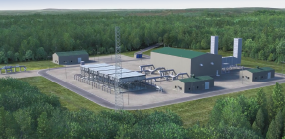It has become axiomatic that allowing consumers to choose their electric-energy supplier &om a competitive market will provide them greater benefits than those offered by the current regulated regime. There are concerns, however, that retail deregulation, the process through which consumers will gain the right to choose, will primarily benefit consumers in high-cost states at the expense of those in lowcost states. These concerns have prompted a reluctance by some to support retail electric competition. This study concludes that all consumers, in both high and low-cost states, stand to benefit from a competitive retail electricity market.
In other formerly regulated industries such as natural gas, consumers, business and regulators have embraced the notion of competition. As described in this study, the results of competition after several years in practice have been lower prices, better customer service, and more efficient use of the country’s resources. There is no indication that the impact of introducing competition in the electric generation industry will be substantially different.
Concerns about electricity price increases in low-cost states often arise from misunderstandings about the concept of price convergence (or "rate averaging") among regions of the country. While competition may cause electricity markets to become more integrated and prices to move toward convergence, regional price differentials typically persist because transmission costs and capacities between and within regions place limits on power flows. Such constraints mean that low-cost regions should continue to enjoy lower than average costs while highcost regions attract new suppliers. Market entry by new suppliers tends to benefit all consumers in an integrated market because competition-driven price decreases in high-cost regions contribute to downward pressure on prices in low-cost regions.
Lower prices for electricity, however, is not the only benefit of a competitive marketplace. Electricity is a commodity and competitors will create new services that distinguish their product from others-a stimulus that is largely absent under the current regulatory structure. Competition also can be expected to significantly improve efficiency since in deregulated generation markets, sellers-not consumers-will bear the risk of excess generating capacity.
The policy rationale supporting deregulation is founded on a long-run perspective because transition issues can mask benefits during the short-run. Over time, as issues such as stranded costs and price realignment are resolved, the benefits become more evident.Successful regulatory policy, then, will focus on the long-run as well as ensure that fair competition, environmental protection, safety and reliability are maintained or improved. Legislation now being discussed in Congress provides lawmakers the latitude to adopt policies addressing other important issues such as price convergence without distorting the evolution of a competitive market. The key will be to avoid a mismatched combination of long-run objectives with short-run policies.
The history of regulation is replete with examples of well-intentioned policies that produced unintended results. Natural gas regulation in the mid-1970s that capped the price of gas sold in interstate markets simultaneously stimulated consumption and curbed production; the result was supply shortages that led to pipeline service curtailments. In telecommunications, state regulations commonly require that business rates subsidize residential rates. This may appeal to the residential consumer, but may ultimately backfire if businesses opt for less costly alternatives, shifting the burden of phone company revenue requirements from the commercial to the residential consumer. As evidence from these other deregulating industries suggests, some policies that are intended to cure any shortcom~ngs inherent in the electric industry transition process may, at best, only frustrate efforts to reach the final objectives.



